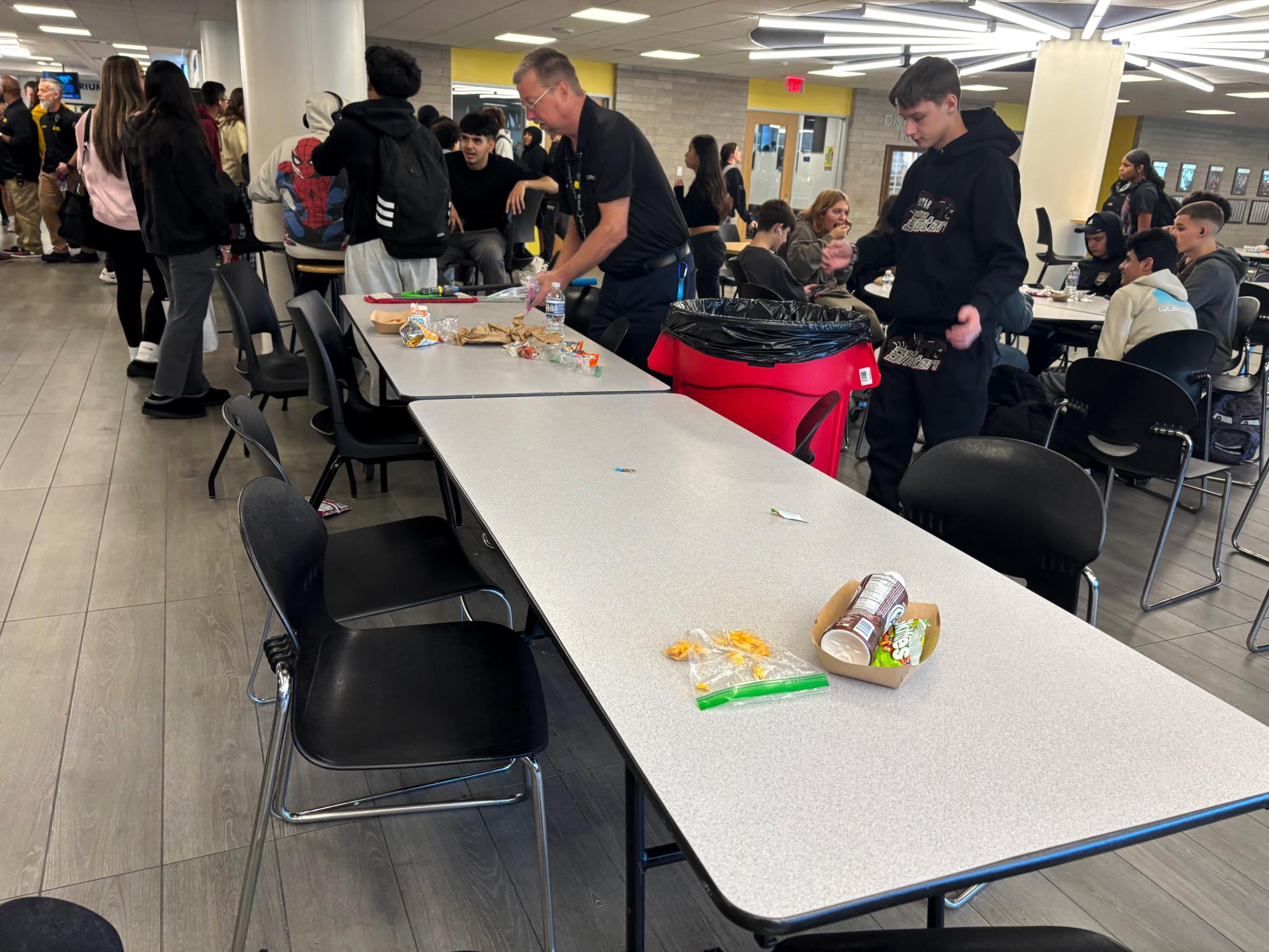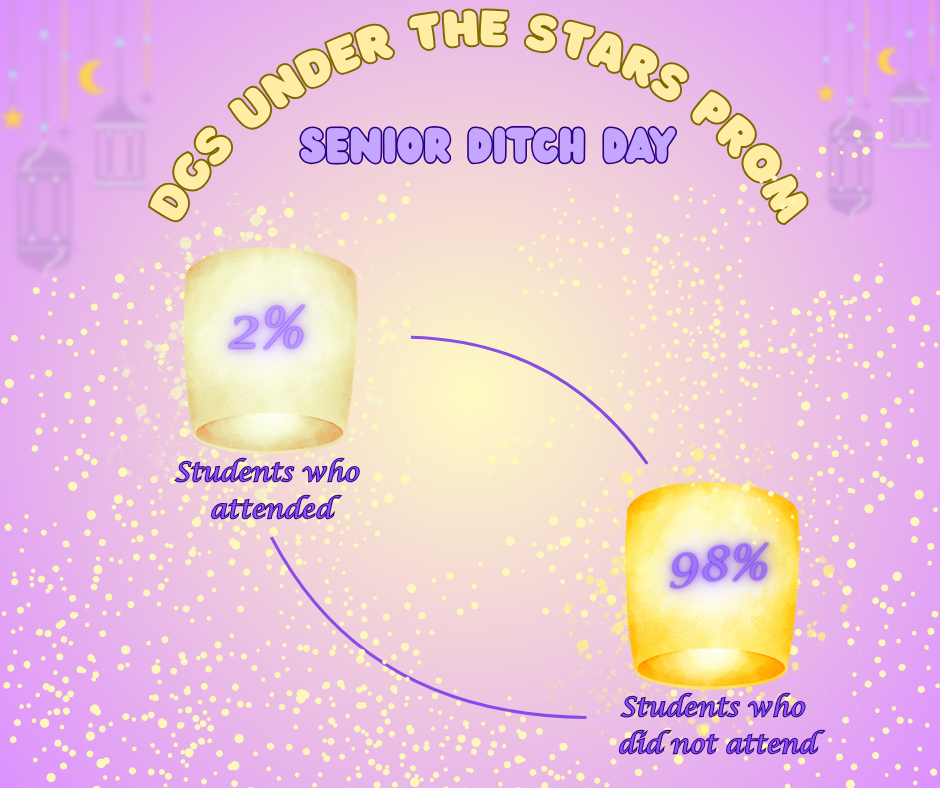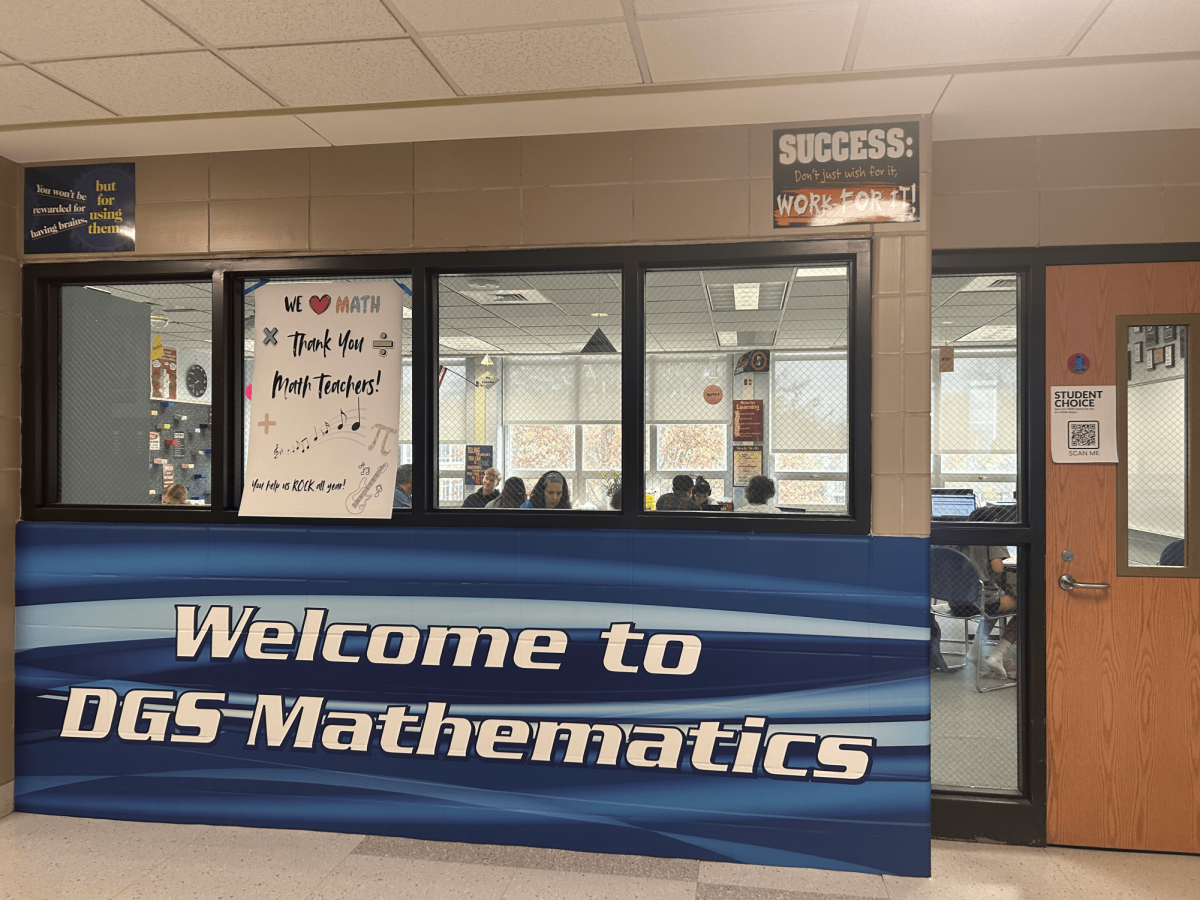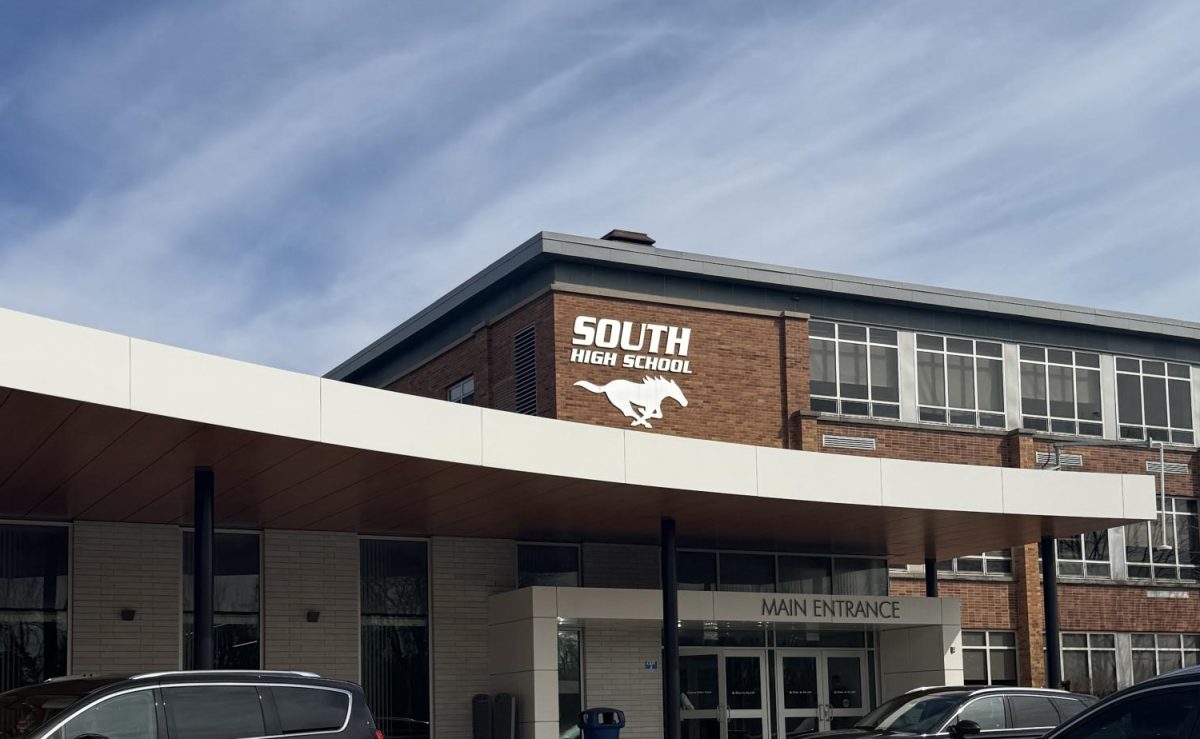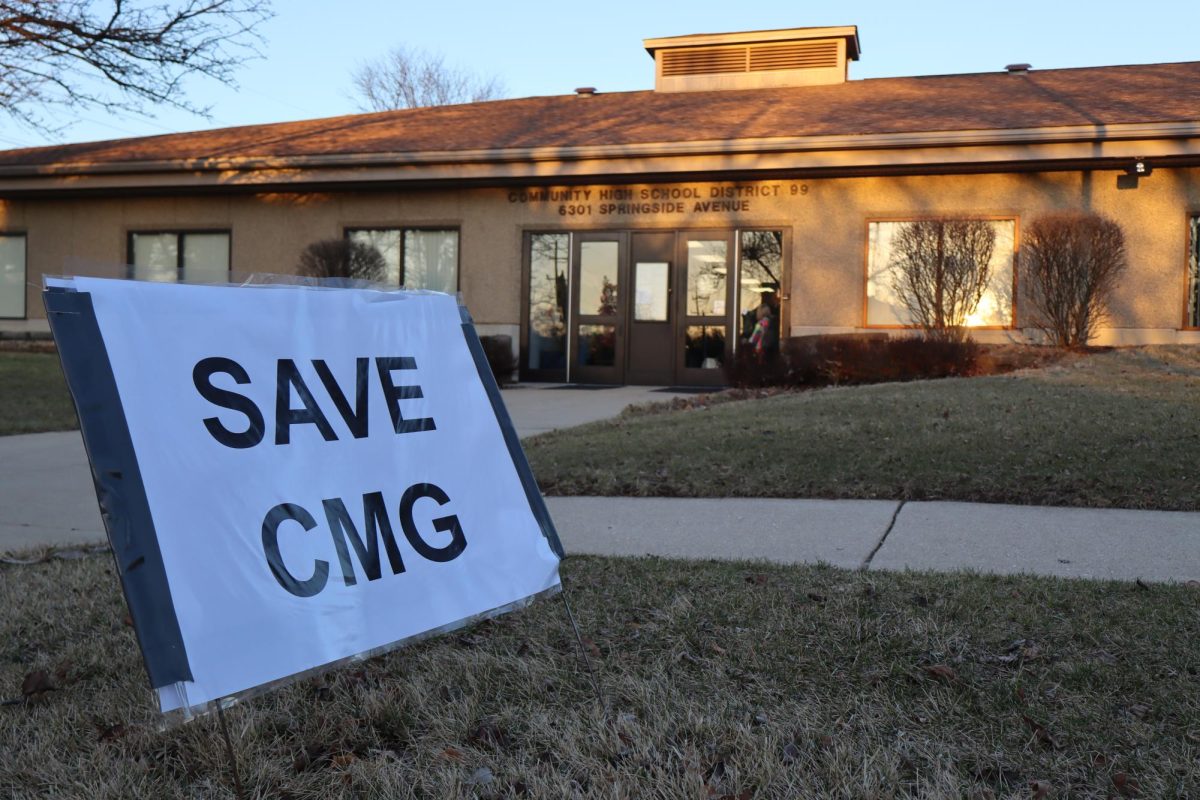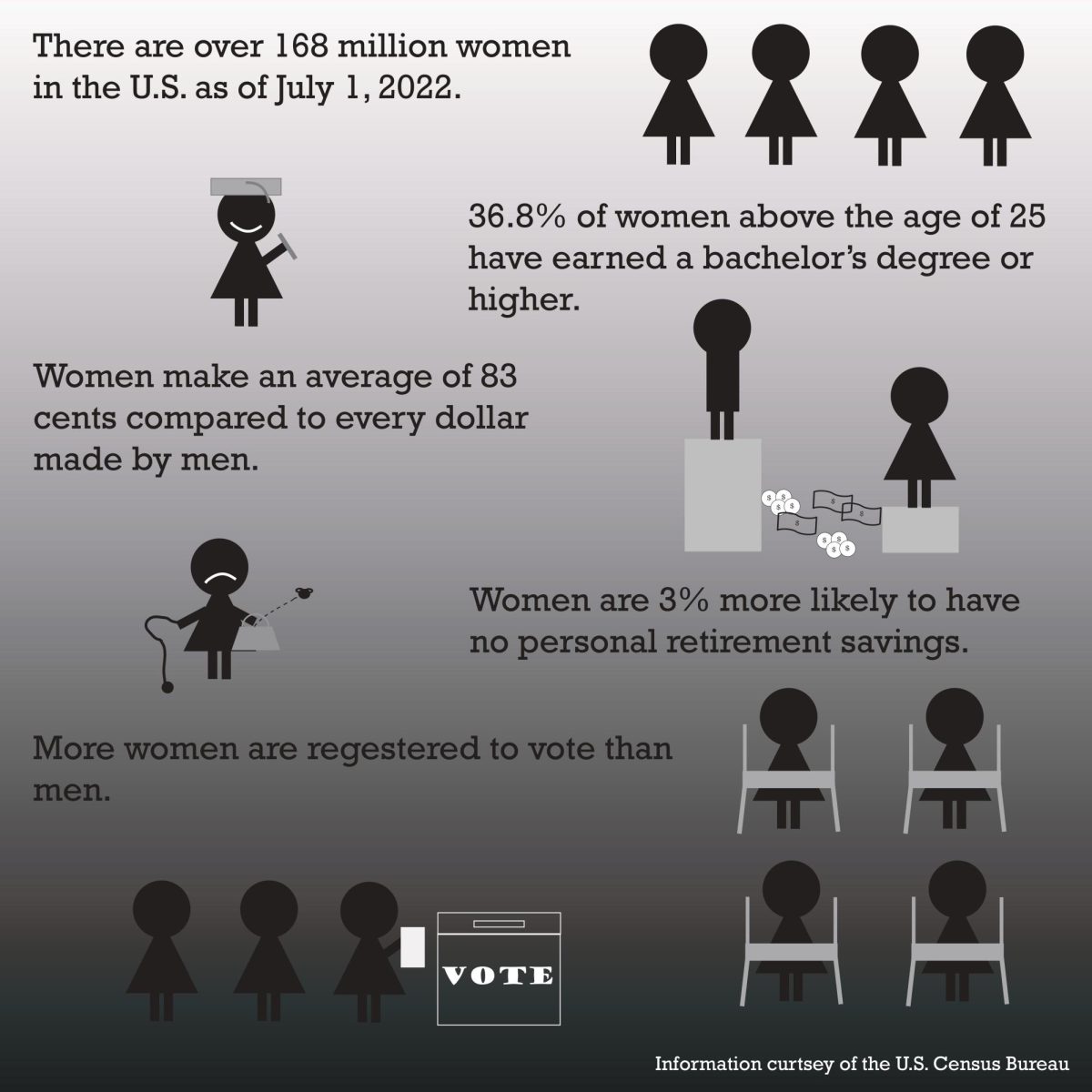Walk into the commons after sixth period lunch, and one will see trash littering the tables and floor, chairs everywhere and students flooding in and out of the space. This scene is not an uncommon sight for students. The commons was part of an upgrade that District 99 made for DGS and DGN; the money came from tax dollars as the DGS commons, library, community room and auditorium totaled $34 million.
Superintendent Dr. Hank Thiele said the design for the commons centered around creating a space that allows for more flexibility.
“The goal was to create a space where there’s more flexible space that could hold all of our students…the whole vision was to create a space that students could gather in,” Thiele said.
However, for some students this wasn’t actually achieved. Sophomore Zack Koch feels that while the space is nice, it’s very crowded and can feel overwhelming.
“Sometimes when you’re in the commons it can feel overcrowded because of how close the tables and chairs are to each other. It can cause traffic jams with so many people moving around with such little space to begin with. I think there could be changes made to make it feel like there’s enough space for everyone to be walking around,” Koch said.
In order to combat the large amount of chairs in hopes of making the space less crowded, there has been a stack of chairs placed by the staircase that students can grab off of when they need it. However, for senior Alexi Newsome, this has caused another problem; people stealing each other’s chairs.
“Whenever people see a chair that is not occupied by a person, they assume that there is no one using it, and they take it without asking…which is very rude and inconsiderate especially because there’s a huge pile of them right by the staircase,” Newsome said.
One of the largest problems is the excessive amount of trash left in the commons. The administration has taken many steps towards addressing this problem. Thiele explained that it’s the building administration that sets the rules and it comes down to personal responsibility.
“It’s the building administration, building team and students that are responsible for taking care of the space. The building administration sets those rules and expectations and there’s been changes over time to respond to student and staff concerns,” Thiele said.
DGS Mustang Way ACCESS has taken the problem of trash upon themselves. These leaders have been tasked with going into ACCESS classrooms to teach the importance of cleaning up after yourself as well as helping pick up trash in the commons. Senior Kim Torres is one of these leaders, and like the others she’s upset about the garbage in the commons.
“A lot of people don’t realize the severity of how messy the commons has gotten lately. The goal is to start the awareness of it [cleaning up trash],” Torres said.
One of the biggest problems is personal responsibility. This applies to all the problems in the commons, from stealing chairs to trash.
Due to the excessive amount of trash, administration closed down the landing areas of the main staircase to just be study areas only, completely removing food from the areas. Koch is upset with the punishment due to the actions of some, and in turn the lack of personal responsibility by students.
“I disagree with the decision [to make landing tables on the stairs a no food zone], I know not everyone was using the space respectfully and that’s why they closed them, however, it sucks for the people who are respectful in those spaces and now they don’t have the freedom to eat or drink in those spaces especially during a free period when the space is designed to be a place to relax, students aren’t able to do so now,” Koch said.
Newsome agreed that students that make the mess should be punished.
“I think they should punish the tables leaving trash, because it typically seems to be the same groups of people that all leave their trash, not a harsh punishment, but there should be something,” Newsome said.
However, Principal Arwen Lyp said that it isn’t just a punishment that needs to be made for change, citing that the administration is basing their approach off of the PBIS reward system.
“You don’t only change behavior by saying you left a mess now you get a referral, but you also change behavior by promoting when you see students doing it well,” Lyp said.
While progress might seem stagnant this year, Lyp explains that this isn’t an isolated problem for this year; however, she believes that the school has made significant progress.
“I do think we’re making progress at meeting the goal of having the commons be clean when students leave…our goal is actually not for there to be no trash or no mess, there’s always going to be some so there’s an acceptable level and there’s some really good progress points we’ve made. Two years ago we used to have students intentionally making messes…and we don’t have that happening anymore,” Lyp said.
Torres agreed, expressing that while being told she has to pick up the trash of others isn’t glamorous, someone has to do it and being a leader she understands that role could fall on her.
“I feel being told to clean up the trash, it feels humbling, it’s not the best title I’ve ever gotten. But I think someone need to start and make an impact and I recognize that being an ACCESS leader I need to put myself in uncomfortable situations and take one for the team if you will. I don’t think labeling us at trash cleaners is a permanent solution,” Torres said.
It comes down to student responsibility. Lyp explained that all the administration wants is for students to clean up their trash.
“We just need every student to throw their own lunch away. That’s it. We are not looking for any student to clean up the floor or even clean up other students’ tables, but it’s just what you eat you put in the trash; that’s all we’re really asking for,” Lyp said.
Check out our editorial on the unexpected chaos the commons creates, Editorial: DGS commons creates unexpected chaos.




